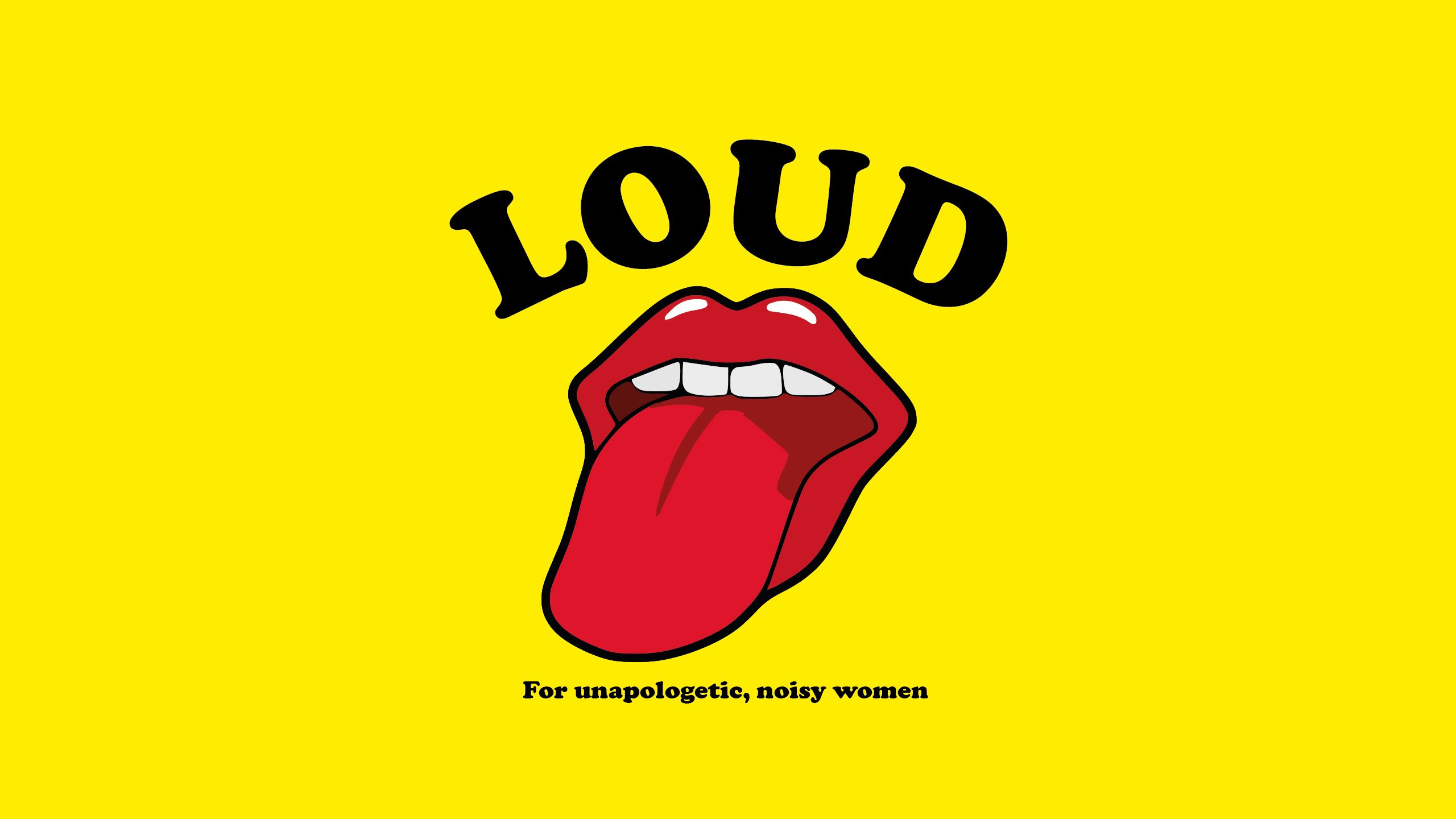
Music's War On Women
By Rachel Roberts
When I was 16, I attended a Bring Me The Horizon concert who are one of the leading metal bands in the UK. I had one of the best nights of my life, filled with complete euphoria and emotional release as I screamed the lyrics of the songs that had supported me through my turbulent teenage years so hard, I could have burst a lung. When the night was over and the lights came on, I was ready to go home with no phone storage, muffled hearing and a few bruises but I was met with a sight that made me stay still in my tracks, my stomach shrink and everyone else around me blur into one: A young woman stood before me with her t-shirt entirely ripped off, streams of mascara and eyeliner down her cheeks, bra exposed and looking entirely heartbroken. I zoned back into reality as a young male who appeared to be her friend or partner put his arm around her and lead her out the doors. Was I the only person who had just seen this horrific sight? I looked to my friends but none of them appeared to have seen the girl and were shuffling out towards the venue doors with the rest of the crowd. When I look back on my teen years as 21-year-old adult, that’s one of my regrets – I offered no help. At the time I had no idea what to do, I thought it was best I didn’t get involved and, in all honesty, I was extremely nervous about attending this gig to begin with knowing it would be male dominated and consist of constant moshing. If that same situation had happened now, I would have gone over to her and asked if she was okay, if there was anything I could do, but my younger self was afraid and didn’t know any better.
This is why it is crucial we educate young people, regardless of gender, on consent and why it is crucial that venues and their security look out for women. No more ‘mosh at your own risk’ signs on the wall, it’s time women and vulnerable gig-goers are provided with protection when they’re just trying to enjoy themselves the same as everybody else.
There’s no denying we’ve seen change over the years, but it’s not enough. Someone who knows the toxicity of the music industry like no other is Lianna Lee Davies, bassist in rock band, Turbowolf. Lianna has worked in venues and in bands for years and from day one has come face to face with sexist microaggressions and blatant misogyny. “I’ve been in the industry for a long time; I worked at record labels, and I’ve toured the world, it still exists.” she says on our Zoom call. She asks if I can see her (I can’t), “Good! I’ve still got my pyjamas on!” her wicked laugh tells me already that she’s full of fire and energy. Calling from her new home above a pub in Bristol, Lianna currently runs her own vegan food business, employing musicians whilst the Covid-19 pandemic has artists across the UK struggling to make ends meet.
As a feminist and seasoned veteran of toughing it out to help those who are underrepresented and struggling, Lianna’s first experiences of sexism date back to childhood, “I started off playing clarinet, but I really wanted to learn guitar but my tutor at the time said I was too small to play. As soon as I hit my teenage years, I saved up all my money from doing the housework in my grandparents' house and brought my own guitar.” Now an educator in guitar herself, she reflects on the sexism laced within her tutor’s comments: “It’s absolutely ridiculous, anyone can play guitar, if you go on to YouTube you can see three-year-old's shredding guitars.” And she’s absolutely right, anyone can and will play guitar. Famous guitar brand Fender released a study in 2018 which showed that women account for 50% of all beginner and aspirational players, that’s half of the guitar market being shunned and discouraged.
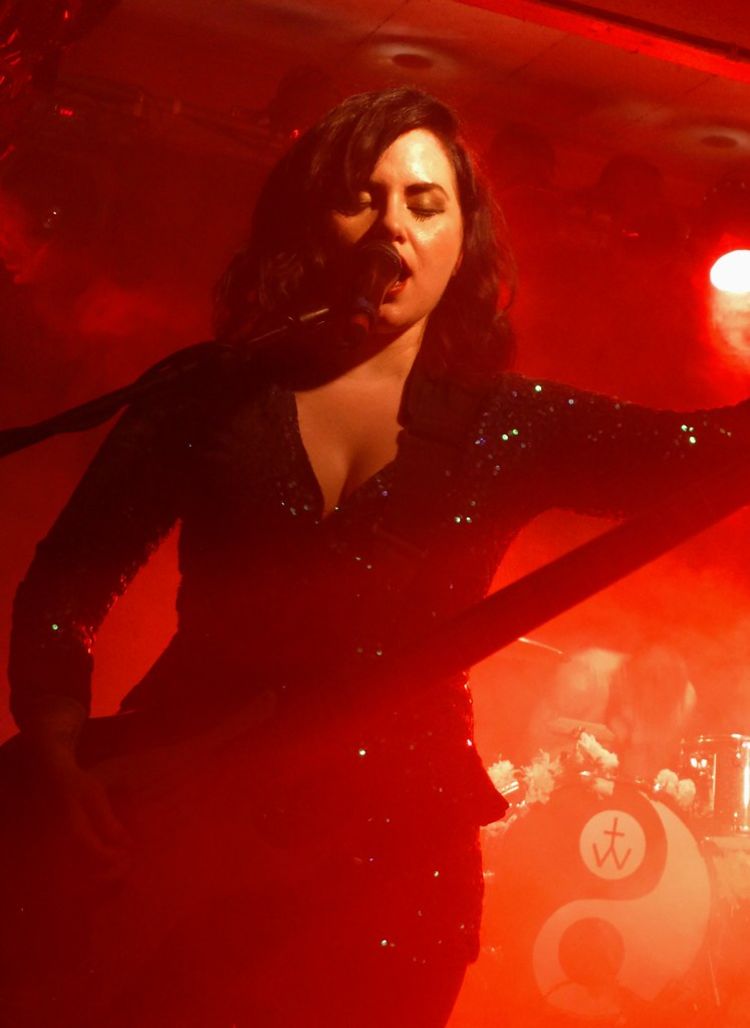
Turbowolf bassist, Lianna Lee Davies. Image taken by Lee Byway on Flickr.com
Turbowolf bassist, Lianna Lee Davies. Image taken by Lee Byway on Flickr.com
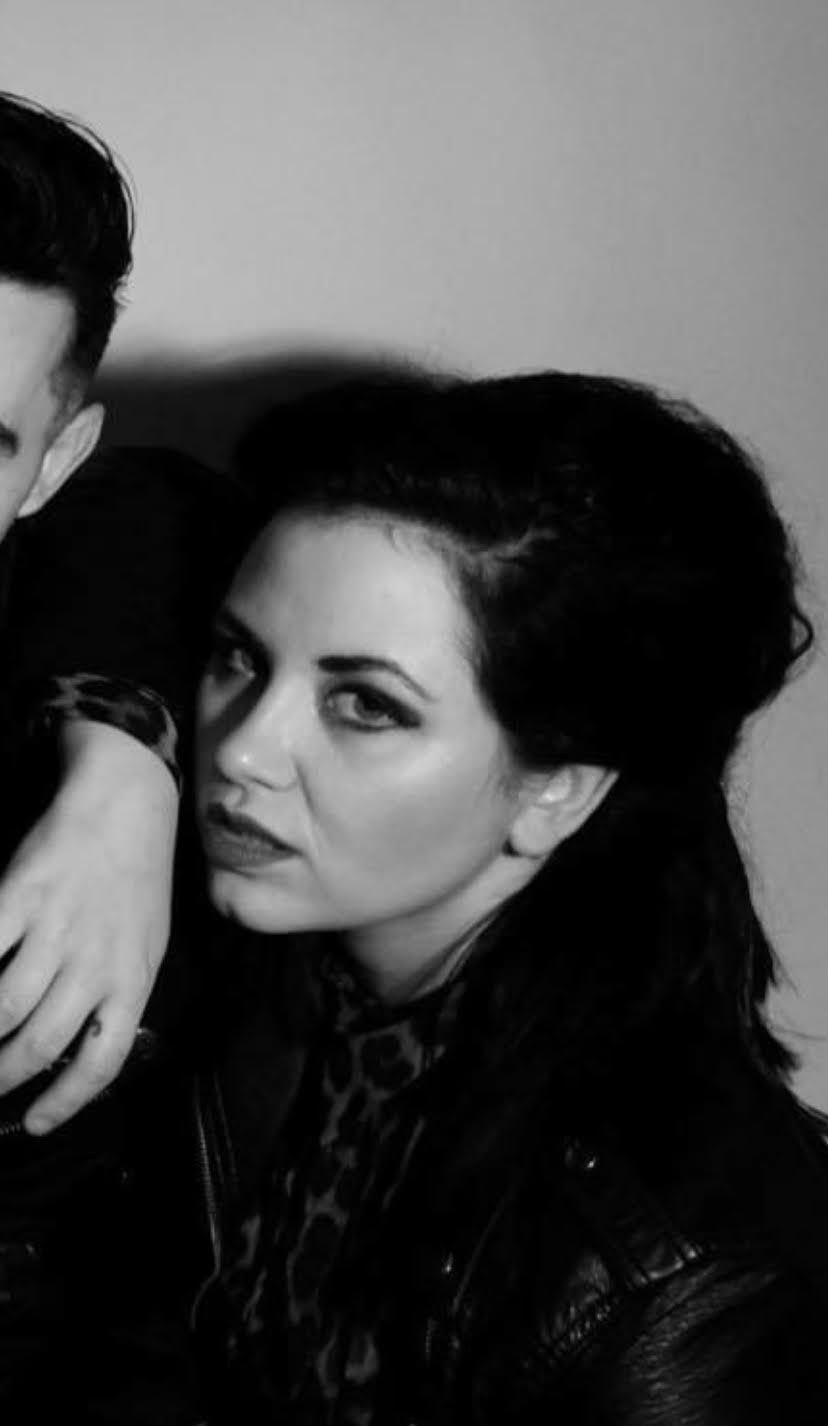
Lianna had to put in twice the work as her male peers to be a successful bassist
Lianna had to put in twice the work as her male peers to be a successful bassist
Like any woman who made it in music, she worked twice as hard as her male counterparts. With alternative music being typically a male space, women are observed and constantly commented on by men as if they need extra help and chaperoning, as if they are alien and clueless. “I felt growing up I had to work harder and be better and really that’s not healthy. It means I'm an accomplished bass player now because I put in more determination, but I do feel that there’s lots of male musicians who aren’t that good and as a female if I was at that standard, I would get pulled apart and picked on.” You can see from any platform online where a woman is sharing her music, there will be an army of men ready to critique the slightest amateurism, but why is this same standard not upheld for men? Why must women be experts straight away? Where is their space to make mistakes and learn without the beady eye of a male critic?

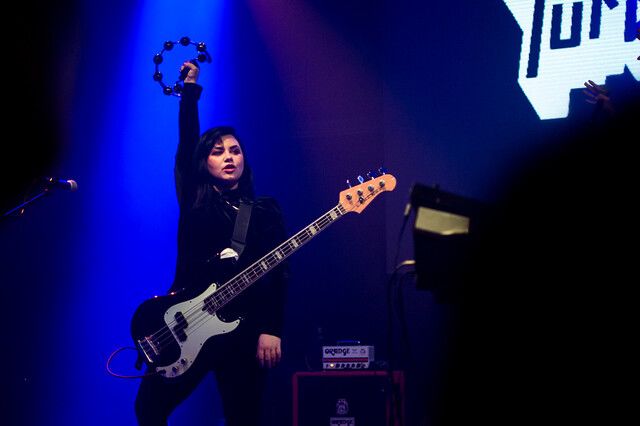
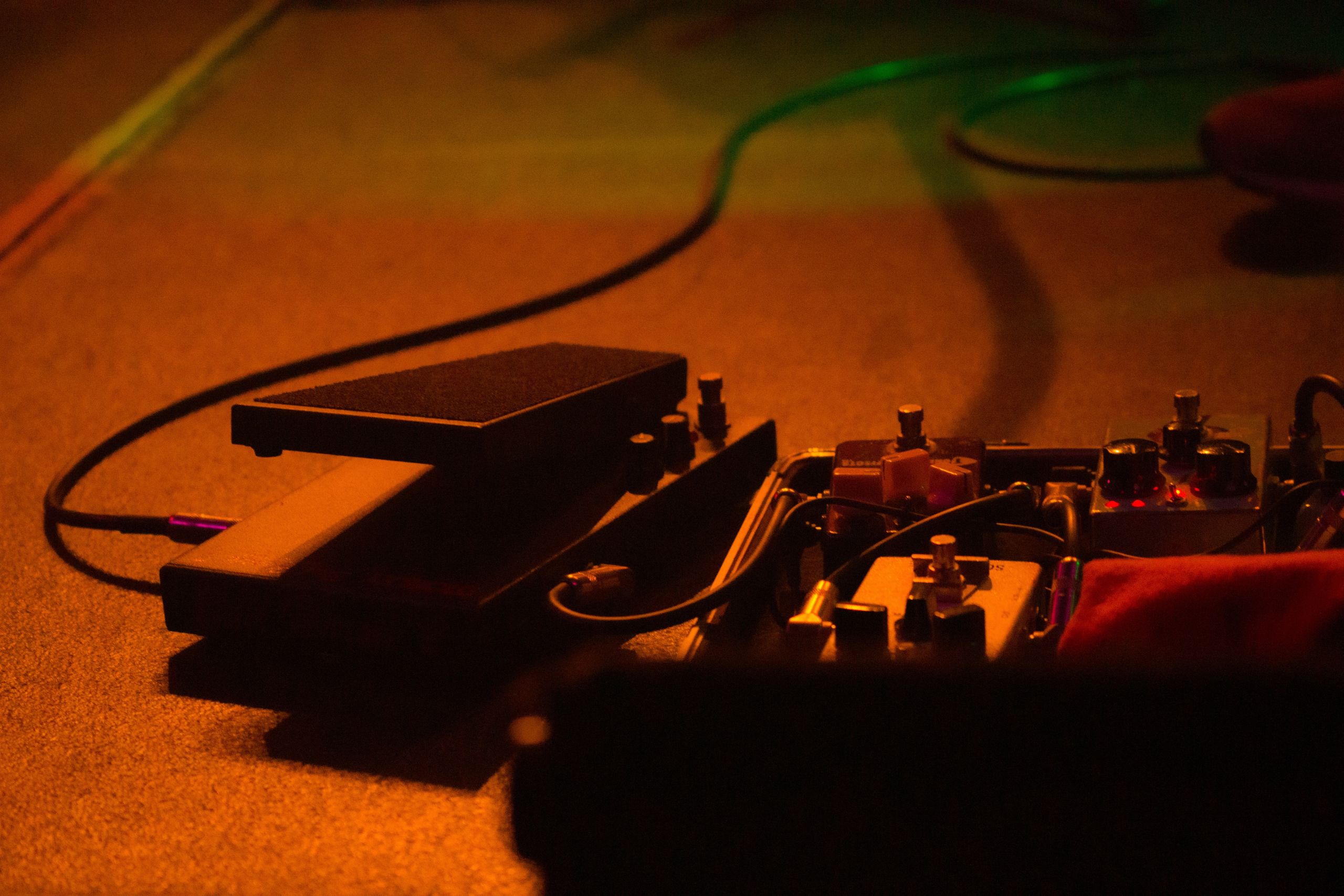

Turbowolf released their first album in 2011 and they have even toured with Royal Blood
Turbowolf released their first album in 2011 and they have even toured with Royal Blood

Lianna on stage
Lianna on stage

Taken by Natsuki on Unsplash
Taken by Natsuki on Unsplash
Education & stereotypes
Lianna’s vibrant Riot Grrrl aesthetic exudes resilience, whilst she is bold in who she is and her opinions, her exterior is reflective of that nature. But it goes to show, no matter how women present themselves in music, whether that be rockstar leathers and bold make up or t-shirts and jeans, they will never be presumed to be capable of putting on a show in the way male bands do: “The number of times I’ve walked into venues and been asked ‘are you the merch girl?’ rather than people acknowledging I’m a musician.” The exasperation in her voice tells me she’s sat behind her computer rolling her eyes. These stereotypes and presumptions flag up what is perhaps sexism at the root of society; the difference in how we raise boys and girls and how we educate them, particularly in music. Just as Lianna said, why are we telling young girls that they’re too small to play guitar or drums? Most music shops will have a junior department, full of guitars and ‘masculine’ instruments all scaled down for children to play with comfort. Yet growing up, it seems many people did not have access to these. I put out a poll on Twitter which showed that 58% of women were told they were ‘too small’ to play an instrument such as guitar as a child compared to only 17% of men. 64% of you also told me you did not have access to junior sized instruments to play. A lack of funding or awareness of junior instruments paired with sexist stereotypes are turning women away from music. Perhaps this sexism even lies within the funding and spending when it comes to providing children with instruments for musical education.
Someone who understands the current state of this education for children is Corinna Gawthrop, music teacher at Brookes UK, Independent School. She stated that the differences between how boys and girls approach their music lessons are “minimal”, yet she notices more boys taking up musical instruments now more than ever and feels that this is down to “The music industry and exposure to musical icons on social media”. She told me that there is “A more prominent change in demographic when it comes to instrumental take up amongst students from lower income families and ethnic minorities.” Which she explained this is known as ‘The Stormzy Effect’. Whilst it is incredible that music is more accessible to those who are under-privileged, where are the girls? Clearly, we need more women in the spotlight to show young women that they can succeed in music.
When it comes to funding, a report published by the House of Commons in 2019 stated that ‘Provision in schools in England is funded from a mix of sources including contributions from school budgets, local government funding and targeted central government funding. The allocation of funding provided to local authorities by central government in each local area is the responsibility of music education hubs. In the 2019/20 financial year, the Department for Education is allocating £76 million for music education hubs.’ To get an example of how this money is then used, I asked Gloucestershire County Council on how they utilise this funding for equal education to which Lisa Mayo, head of Gloucestershire Music responded, “Gloucestershire Music is the largest delivery partner for the county’s Music Education Hub ‘Make Music Gloucestershire’, which is funded by Arts Council England and provides key elements of the National Plan for Music Education (NPME). This includes Whole Class Ensemble Tuition (WCET) where a whole class learn an instrument for at least a term. For pupils who experience financial hardship we have a bursary scheme to provide assistance for children to hire and learn a musical instrument and in addition, all pupils who are eligible for Free School Meals and/or Pupil Premium have free access to an instrument. Some independent schools may have more funding available for music tuition and absolute freedom in how they use it. This does not mean however that the quality of tuition and opportunity available to pupils is less in the state sector. As part of WCET schools are provided with a tutor and a set of instruments. Some instrument sets are year group dependent; for instance, all year 1 pupils (aged 5 and 6) will find it hard to learn clarinet due to the size and technical challenges of playing a wind instrument, but other suitable options are available. Most instruments we offer come in different sizes such as violin, viola, cello, guitar, and p-buzz (brass for infants). Smaller versions of some instruments are not needed like samba, Nigerian drumming, recorder and ukulele. Our hire scheme caters for all size needs.” If a range of instrument sizes are available, there should be no excuse for telling any child, particularly young girls, that they are too small to learn an instrument. We can only hope that this is an issue which has resolved over time.
Harassment
Whilst sexism is an issue at the root of musical education and society as a whole, it’s also been nurtured and continued through years of inequality to grow into a full-sized forest of stinging nettles, burning at the ankles of any woman just simply trying to be heard and seen in an environment crafted for the male kind. Sexism birthed sexual harassment and assault, which of course reared its ugly head in the world of an already misogynistic music industry. “I’ve always called people out, I’ve punched a number of people for coming in my face,” she gives a mischievous, guilty laugh, “Which people have been surprised at even if it’s just cat calling.” And do we really blame her? A survey carried out by YouGov in 2018 found that nearly half of women (43%) under 40 have faced unwanted sexual behaviour at a music festival. Even cat calling perpetuates rape culture, allowing statistics like this to thrive, and sadly only 1% of women reported sexual assault or harassment to a member of festival staff, either before or after the event. Lianna’s experiences are telling of the issue all over the world, “Being on tour in Europe and in America, there is still an inappropriate vibe over there which isn’t okay. There’s places that are better for it, there are places in Germany which are very liberal but especially if you’re in an alternative style band it’s very community based at a lot of the venues out there, it generally still is a boys club unfortunately.” She sighs.
Calling it out
Lianna feels ‘cancel culture’ is taking a key role in eliminating sexual misconduct, but is doubtful it’s fully effective: “It’s becoming more of a discussion and more people are talking about it so there is slightly less of that but there is part of me that feels that’s because people are afraid, they’re gonna get called out if they do anything out of place now, which is good, but I don’t know... for a lot of the older people in the industry it still doesn’t underline or under pin their values.” Whilst calling people out shows others that same behaviour will not be tolerated, is it also just letting people sit quiet with their sexist opinions?
As the only woman in her band, her bandmates thankfully are willing to educate other men when they cross a line, “They’re very good, but again it’s a corner that they shouldn’t need to fight for me.” She admits, “I’ve always been calling it [harassment] out, which has got me in to trouble and I'm obviously seen as a gobby bitch for it but that’s my underpinning values as a female artist and as a female in any sort of sub-genre or alternative community; I don’t tolerate anything like that.”
Lianna has worked in music venues as a manager and during her time there, ensured women’s safety was a priority: “I’ve always really pushed [staff] to listen to women when they’re saying someone is making them feel uncomfortable. You find out a lot of people know each other and that it’s probably like the security guards' mate so they’re not gonna blame them but they need to draw a line between that friendship and being professional. People forget in any other job that wouldn’t be tolerated and you would be sacked.”
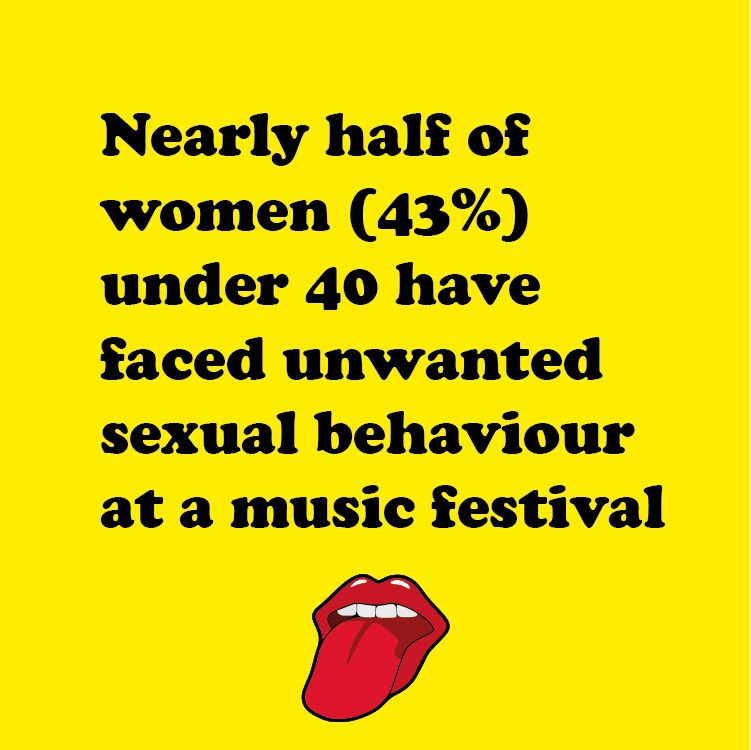
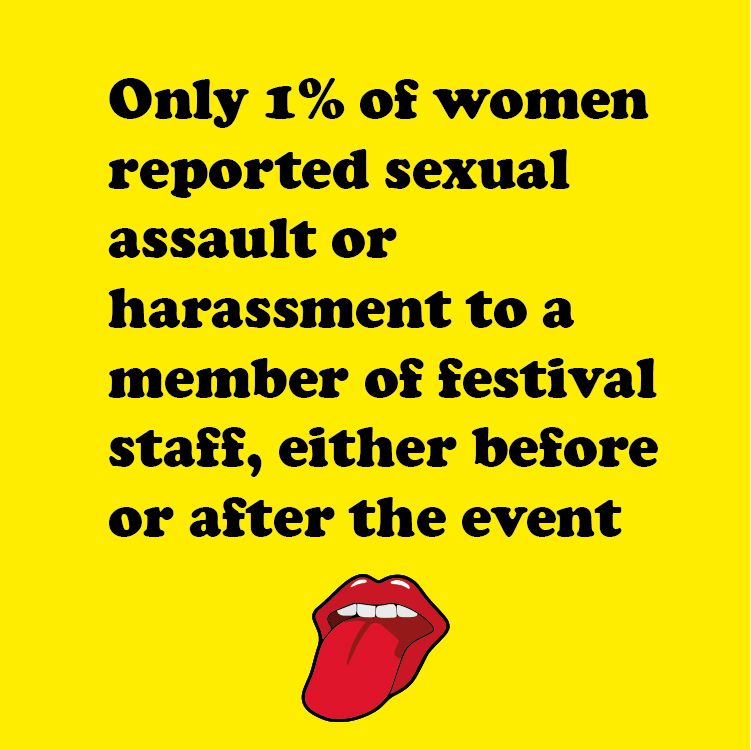
Motherhood & music
Women are consistently defying boundaries and doing incredible things. Lianna found out she was pregnant whilst on tour and by this point was already far into the pregnancy. She told me how her bandmates and those around her supported her and ensured she was safe, whilst she still went out on stage every evening and played her bass with the same raw passion and stage presence. If playing a rock concert while pregnant doesn’t prove that women in music are of a high level of passion and determination, I don’t know what will!
Whilst the support during her pregnancy was as it should have been, Lianna faced stereotypical expectations of motherhood and judgement on how she would progress in her career with a young son to look after: “I did feel people felt that because I was having a child, I personally wouldn’t want to go back into playing in a band. I got that vibe from lots of people. It does change everything but if I was to give up my music career alongside having a child, I'm just going to resent my child. I do feel I got a lot of grief, and it was actually from other females and other mothers. I felt like it was because they didn’t have that opportunity [to go back to work].” The expectation that women need to stay at home once having a child manifests itself in internalised misogyny for many women, who continue to push that on each other. Many career-driven women with children will have faced the same judgements, but by breaking down gender roles for future generations, we can remain hopeful that the future will be different. “I'm lucky that my partner and I raised our son where there’s no gender roles. I got paid more so I went back to work, and my partner was at home with our son. I felt like as a mother, I was judged more by other mothers about my choice of going back to work. Of course, I would love to spend every second with my son but I’m not from a rich background so that’s not gonna happen.”
It’s a man’s world, but it wouldn’t be nothing without a woman or a girl...
Despite all the struggles of being a female musician, believe it or not, there are some bonuses! Does being a woman in an all-male band make you stick out like a sore thumb? – of course it does! But that’s not necessarily a bad thing when it comes to drawing in a crowd: “Having a female in a band can actually sell more [records] ‘cause at the end of the day in human nature sex does sell and females are generally more attractive,” she giggles as she admits, “and I'm a straight female saying that. I understand that I am a product of that, but it’s about sometimes as a female, being smart about it and doing what you want to do and being true to yourself and if you’re gonna sell more records cause you’re a female - great! If people are gonna buy into that then let them.”
The future
So, after all we’ve explored here, how the hell do we change this? What does our future look like? Lianna believes the key is in women supporting other women, “I think it’s also about women supporting women and letting us call things out. You see it in the news all the time people getting called out for things they did years ago, and I think other women need to be more supportive towards that and listen.” Girl power in alternative music has been strong since the days of 90’s feminist punk with bands such as Bikini Kill who started the phrase ‘revolution girl style now’ (which eventually became an album title) and at gigs called all girls to the front. Women have continued to explore themes of sex and owning their sexuality within their lyrics and music videos for decades, and they’re only getting more and more honest. Tackling slut shaming and being activists online is what’s making women in music expand and allow themselves as well as their female fans, to take up space and be opinionated. For those that want to be at that point, Lianna says you should “Work hard and never give up. The only way you get better at something is practicing; it’s putting in that time and effort to become the musician you want to be and never giving up.”
Lianna continues to juggle motherhood, owning her own vegan food business and being a boss, bass playing babe. Here’s what the future has in store for her: “We started to write a new album, we’ve got a couple of tracks, but the pandemic has been turmoil so hopefully there will be a new album, but we don’t know when, hopefully when we can be in a room together. After that, hopefully playing gigs again! Personally, I’ve been working on my own album and I would like it to see the shed of light before the end of this year or maybe beginning of next year.”
Image taken by Edward Xu on Unsplash

What about now?
So, what’s happening now? I spoke to Robert Scarlett of 2000 Trees Festival, a rock festival held in Cheltenham every summer. Rob is the creative director at the festival and also coins himself as ‘the person most interested in equality and social justice’, as he is part of the Diversity and Inclusions Committee for The Association of Independent Festivals. This year's festival was due to go ahead on July 7th, yet has now sadly been postponed due to further travel restrictions. However, Rob informed me that 28% of bands in the line-up had women in, that equates to just over 10% of females participating overall.
He explained to me how the festival approaches booking bands, and how they don’t actively seek female musicians; their process involves just listening to music: “We book the line-up and then we look at what it is. Unless a band has got a female singer, as in when you listen to the band it’s obvious, we don’t know what the band looks like. I'm assuming that a female bass player, guitarist, keyboardist or drummer sounds the same as a male version or non-binary version. So, we don’t actually know.” Initiatives such as the Keychange pledge encourage festivals to seek out women to create a 50/50 gender split in festivals, yet Rob felt this type of programme wasn’t suitable for 2000 Trees: “We don’t really believe that a 50/50 gender balance is achievable at the moment for our genre, we’re a rock festival and we go all the way up to some fairly scary metal which tends to be populated by beardy blokes. Now that’s not to say we shouldn’t try and make those genres more accessible but raw numbers like the PRS Keychange 50/50 didn’t really work for us.” However, he’s hopeful things will continue to change, “We went through our old line-ups and what you’ll find is it goes up and down depending on what's going on, so we had a really good year in 2017, we had 33% of women, which had gone up 16% from 2012 to 28% now with no policy change from ourselves. It’s an upstream problem from us. The better question is why are so few women interested in playing rock music?”
Whilst many may disagree that women aren’t interested in rock, as we’ve found, education and encouragement at childhood may be behind the lack of women within labels and agencies that leads to the lack of women in festival line-ups, “I think there’s a grass roots problem. I don’t care whether there’s men, women or trans people in a band I just care about their music. One of the things we’re trying to find now is a grass roots organisation to invest in, so we can actually be involved in it in that way.”
When it comes to the audience’s festival experience, it appears the festival are putting in more initiatives to keep women safe: “We think reporting is a problem, which is something we’ve been working on with our security team. When a guy up-skirts a girl at a festival it’s not the same serious level as something like physical assault or rape so therefore people are less likely to report. They also don’t wanna fuck their whole festival experience up because it can mean hours of you telling your story over and over again. We’ve been working on some policies with security as to how we anonymize that and make it easy to contact the security team and actually have someone specially trained in the security team, often making sure there’s women on sight and that staff are specifically trained to deal with that level of trauma.” He explains, “That was a policy in conjunction with talking to the charity Safe Gigs 4 Women. It’s a constant improvement and sometimes these things boil down to having proper signage, so people know where to go. It’s not a big financial impact for festivals it’s just ensuring you have enough trained people in the right places so they can catch it. As soon as we know someone is walking around up-skirting people then we can police that and know it’s actually happening.”
While these changes will certainly help many more women and vulnerable audience members feel safe, there’s always room for more improvements – so, what’s going to happen at 2000 Trees? “We’re going to continue to work with Safe Gigs 4 Women and make the reporting process easier. We’re already a safe event by all the measurements you can think of but we’re going to continue to engage with them to make sure we stay on top of trends of behaviour because it’s not a fixed problem it’s a constant vigilance.” If you have any concerns or ideas on improvements, Rob says the festival are always willing to make a difference, “One of the good things about little festivals is we’re approachable and we listen to what customers say so we’re able to implement quick changes.”
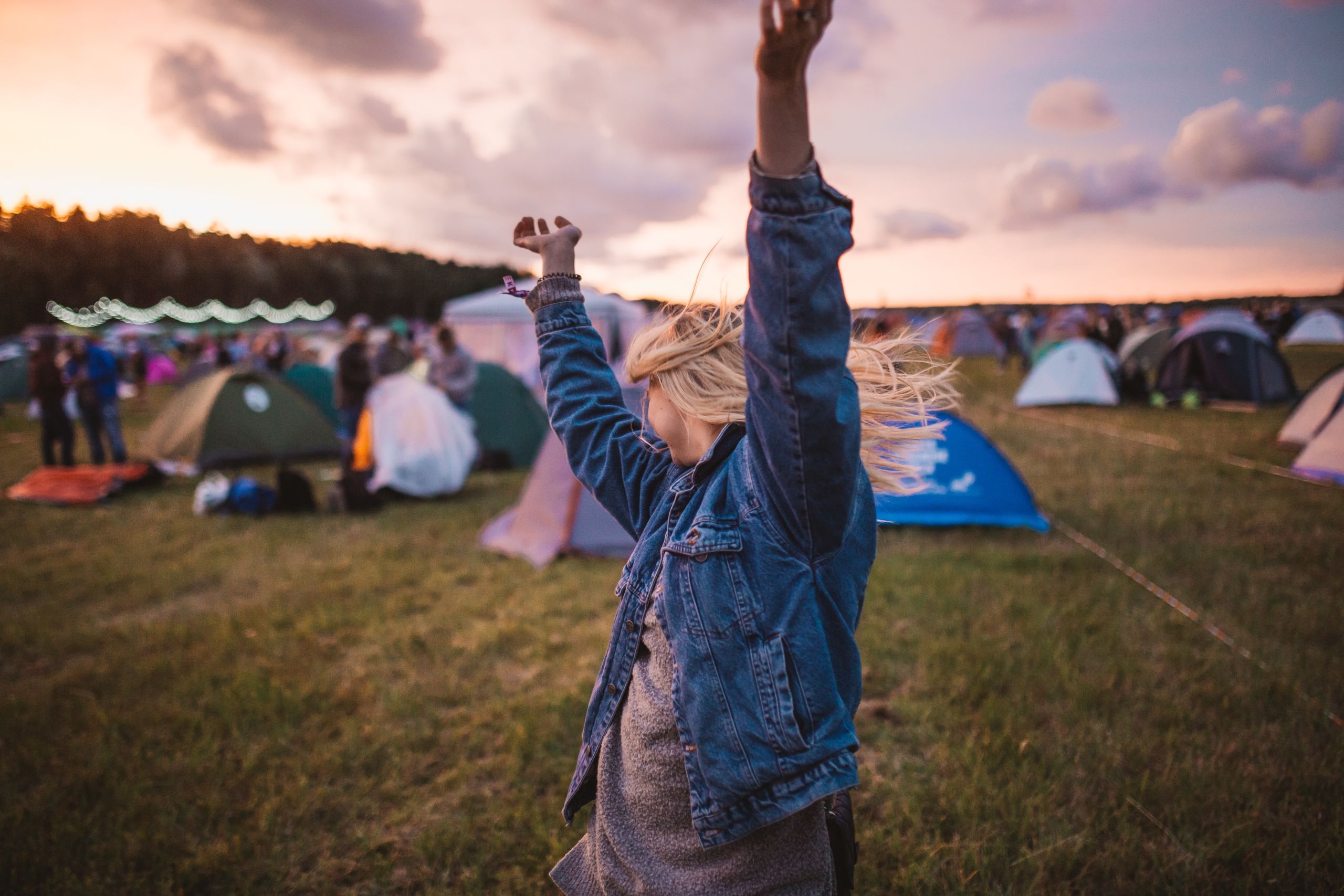
Taken by Krists Luhaers on Unsplash
Taken by Krists Luhaers on Unsplash
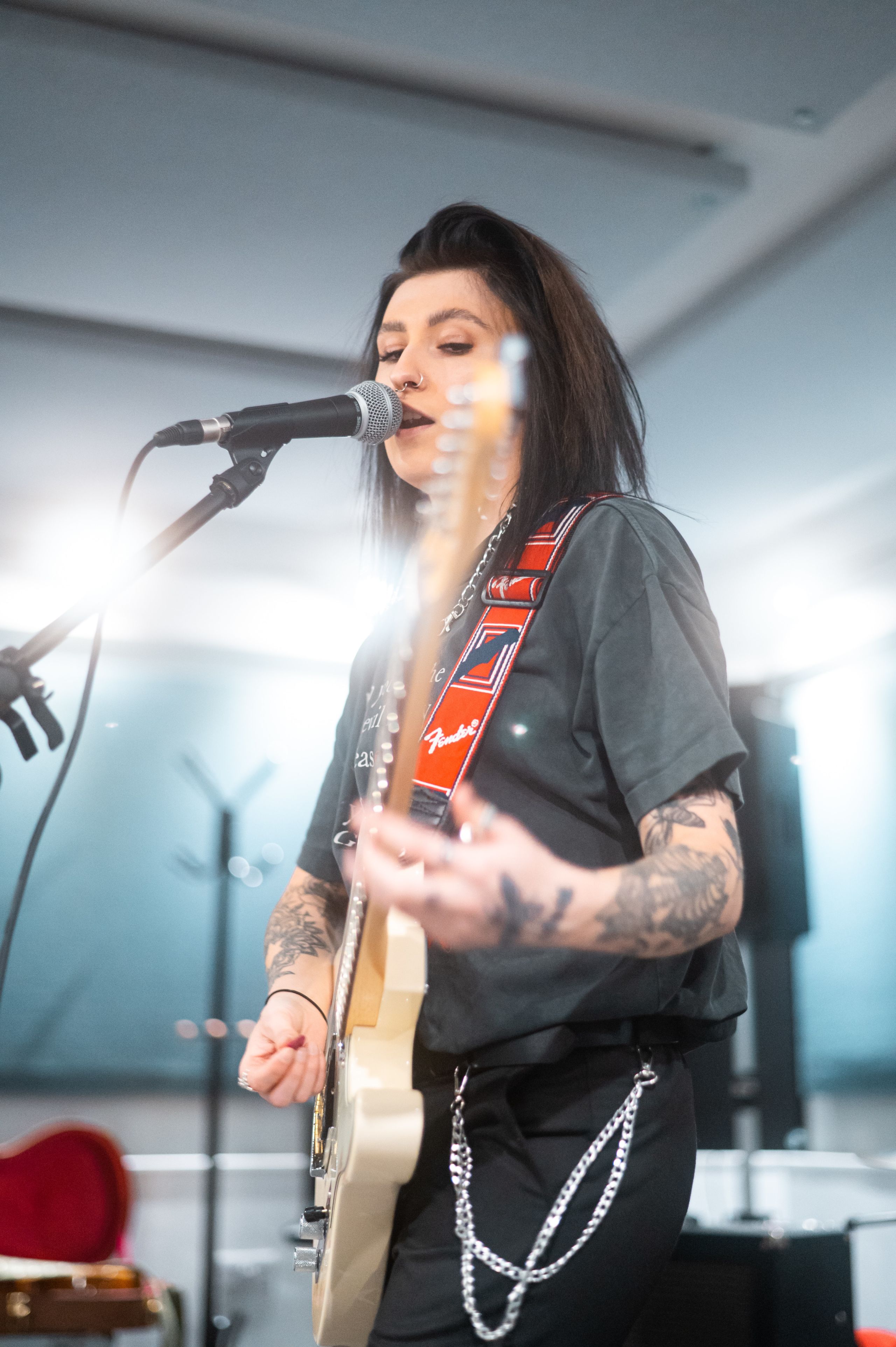
Taken by Harry Shelton on Unsplash
Taken by Harry Shelton on Unsplash
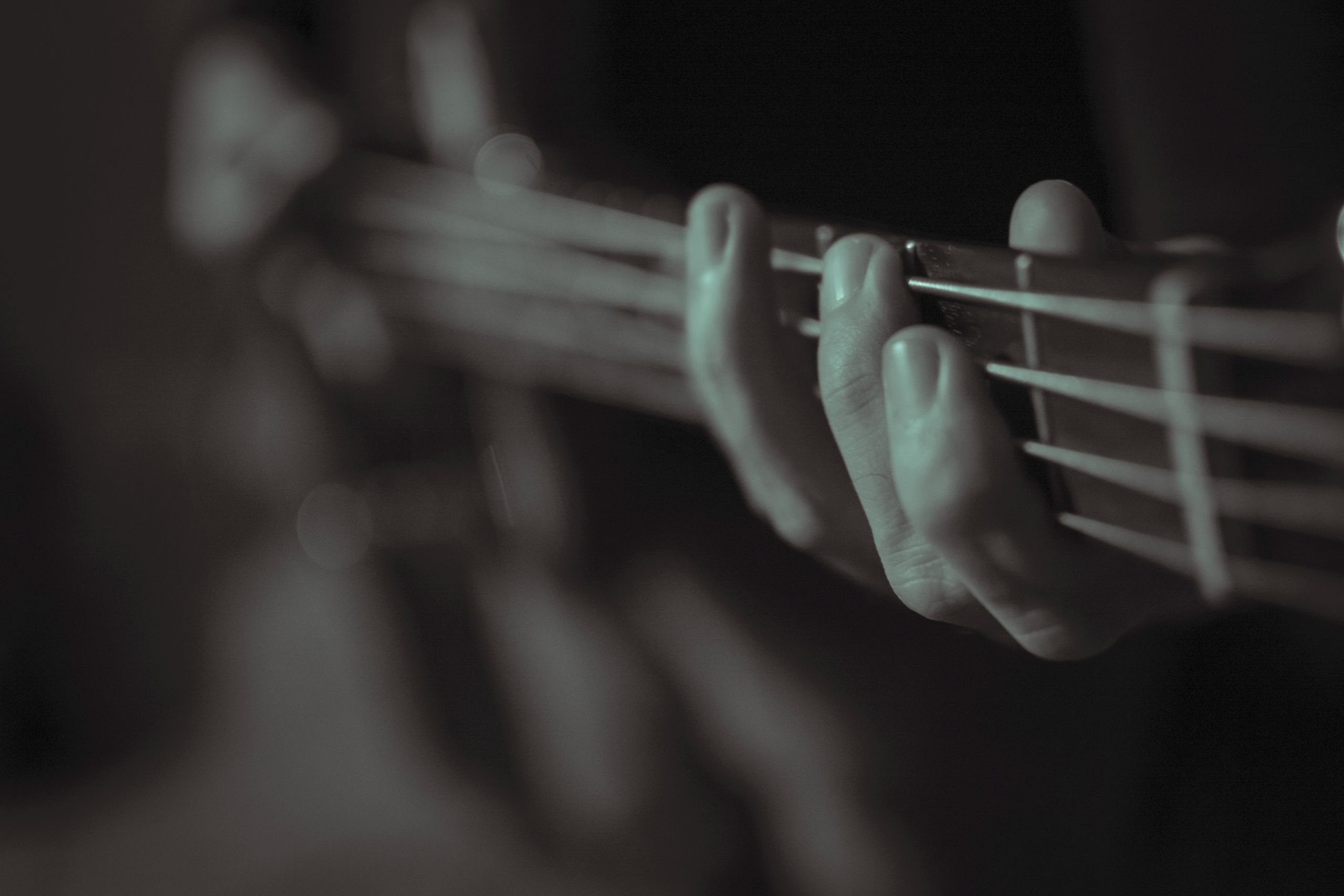
Taken by Laura Nyhuis on Unsplash
Taken by Laura Nyhuis on Unsplash
How about security?
As Robert says, reporting is a concern. And who better to ask about reporting than Reg Walker, operations director at ISG Security, who with 36 years of working in security under his belt, is passionate about keeping vulnerable audience members safe. Reg has toured with artists such as Green Day, Metallica and Morrissey and for the past 18 years has worked with most major UK festivals which he says has been an ‘absolute privilege’.
“We go in and provide specialist support operations that identify bad actors that target these events and part of that touches on sexual harassment, misogyny and unacceptable behaviour on women and other vulnerable audiences.” Reg’s company works with what is called ‘source intelligence’, where they have people that provide them with graded information and intelligence that they then work with law enforcement to develop and utilise. “We work behind the scenes and assist venues and organisers with developing strategy to counter some of the risks to audiences, we were the original people 45 years ago who were telling event organisers that security must be in-depth because prior to that there was this mentality that your responsibility ended at the doors because that was where your license ended. We go for a more holistic approach which involves extending that security in-depth to transport hubs and I think over the years that’s proved a very wise strategy, it certainly kept a lot of people safer than they would have been if it had just ended at the doors.”
I asked Reg on what the protocol is when sexual assault is identified in a crowd, but he told me it’s not quite as simple as short set of rules and that actually, there needs to be policies and strategies in place to prevent it from happening before it gets to that point: “The first thing is to ensure the venue, event or tour has two policies – a public facing policy and a private policy. Your public facing policy is the initial step you take to ensure people know that if they do X, Y will happen. X in this case would be sexual harassment, misogyny or any form of sexual assault. If you commit this, we will detain you, we will gather evidence, we will call the police and have you arrested and it will be up to them to prosecute you. That needs to be a very clear public statement.” He talks with firmness and conviction as he explains the seriousness of harassment. “Then you’ve got the details and nuts and bolts behind the scenes, and these are not public as you want to keep it secret from people purely because by announcing how you process a suspect or victim you can inadvertently give information as to how a perpetrator or offender can commit an offense and get away with it.” He tells me that this comes under briefings to staff and having a general safeguarding policy.
However, whilst some of security’s protocol is kept private, Reg tells me that part of their strategy to safeguard is having dedicated spotters, and if you’ve been to a festival or concert, you may well have seen this process happen before, “In that large environment it’s difficult to spot, it’s difficult to get to the victim and it’s difficult to apprehend the alleged perpetrator, so you build into your infostructure spotters on the barrier at either end, and you may well have people further in. They will be looking for anyone in distress it doesn't just cover harassment it's for any reason like fainting or becoming unwell. They will be specifically looking for behaviour exhibited by members of the audience that could indicate that they are in distress, what you would then do is if they are not within reaching distance of that barrier is send a response team in to investigate and that’s your first point of contact.”
Reg explained what happens next after that first contact, “If there's the slightest suspicion that an offence has taken place you then up your game a level. It’s important how you handle the victim because potentially that victim will have evidence on their person, their clothing and it is essential you preserve that evidence for police in order to work towards a potentially successful prosecution. Sexual assault and harassment are notoriously difficult offences to prosecute so it’s absolutely essential that evidence is captured quickly in real time, that people are handled appropriately and the same goes for the perpetrator because they may have cross contamination on their clothes as well.”
Whilst large venues are of course a challenge to work at as security, he describes festivals as ‘a whole other animal’: “You have people staying overnight in insecure accommodation and frequently under the influence of alcohol and or drugs. When you mix those three in its a recipe for disaster to a certain degree, you’re effectively dumping a small town in the middle of a field with no chance to get to know your neighbours and no chance to develop relationships!” He laughs thinking about how bizarre the concept actually is. “If you’ve got a medium to large festival there’s no reason that you should not have welfare officers, and these should be people who are trained in processing this type of reporting and dealing with victims. What you find now is that many of the major festivals employ specialist companies to do this and you’ll find that they have safer secure areas and within campsites; they have a zone manager, zone supervisors, security, and frequently now you’ll also find police on sight.” Just like Rob of 2000 Trees said, many festivals have or are working towards an easier approach to reporting: “There are certainly more facilities in place to improve reporting so it’s more streamlined and more friendly. There will be a safe reporting space and all security now should be trained in securing a scene, not handling evidence, not handling the victim and not handling the alleged perpetrator as well but dealing with this in a swift and compassionate manor and giving it the serious attention it deserves.
With live music events set to go ahead for the first time since the pandemic this summer, I asked Reg if he thinks we will see a rise in inappropriate sexual behaviour. He told me he was concerned that the industry may become what he calls ‘Covid blinkered’, and that whilst so many measures must be in place to ensure events are Covid secure, the hard work over the years that had made gigs much safer could be at risk of being forgotten. This is why he thinks we need consistent awareness and discussion of this issue: “I think what we need more of is public awareness and education, this education should be taking place from the cradle to the grave. We need to be teaching that you treat others with respect regardless of their gender, their race, it doesn’t matter we are all human beings, and you should treat each other with respect. You do not have the right to stick your hands on somebody that hasn't invited you to do so, you do not have the right to say things to somebody that are inappropriate and will cause offense and in many cases trauma or harm.”
What do venues, festivals and events need to do better? “I think we’re in a much better space than we were ten years ago but there’s still room for improvement.” Reg says, “You need security in depth, something that many events and venues do not put in place is that behaviour detection to identify these people before they do harm.” Reg advises anyone who has been harassed, assaulted or made to feel uncomfortable to come forward: “If you feel you have been a victim, make sure you tell someone. Victims are not on their own and they will be listened to and taken seriously.”
Image by Flex Point Security on Unsplash
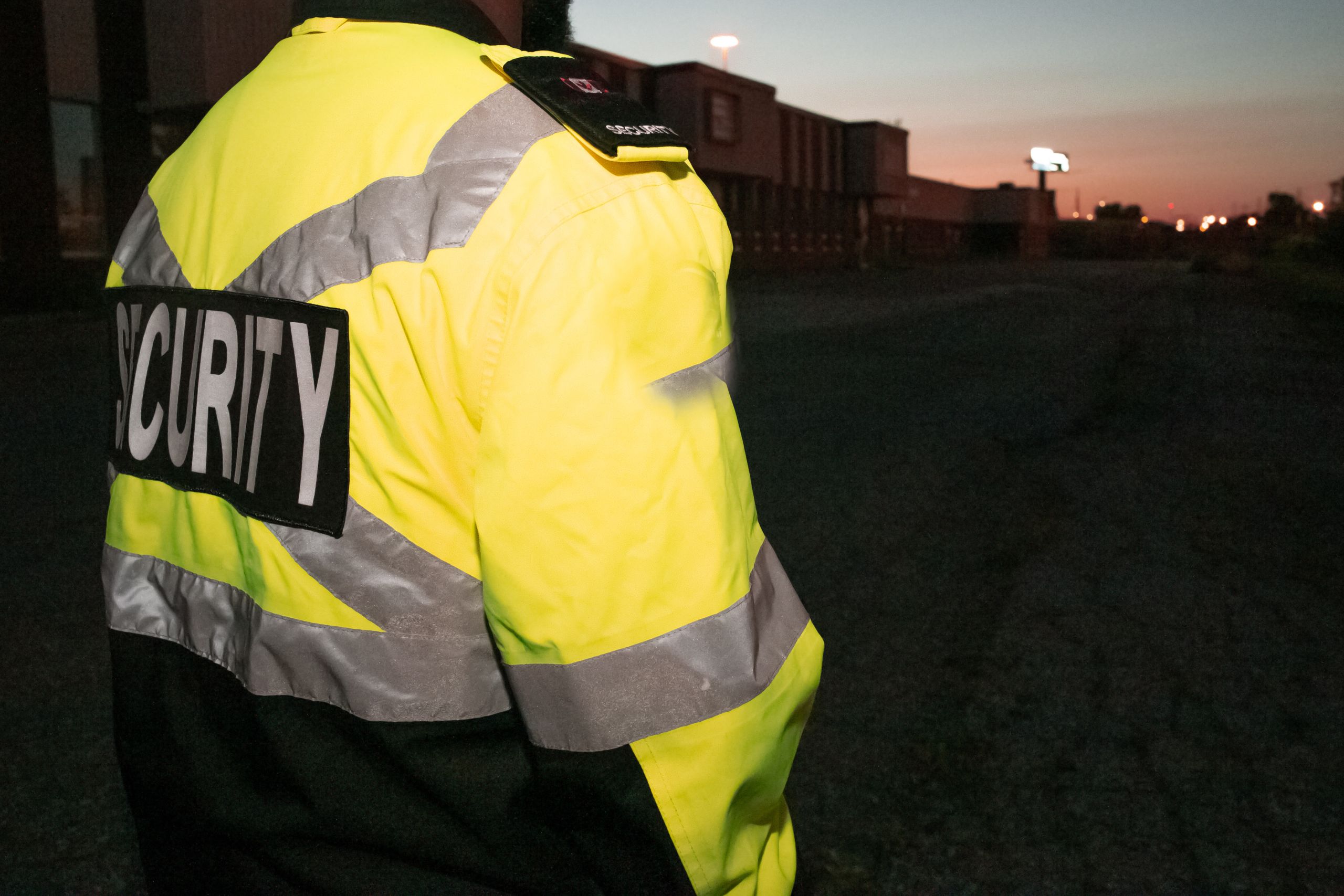
The end of the show
We’ve talked about underrepresentation, harassment, stereotyping, sexism, misogyny, you name it – we've explored it all. But it can’t and won’t end here. The war on women within the music industry continues, and unfortunately may never totally end. But what we can hope for is safer gigs for women, quality education on consent and sexism and encouragement for women to express themselves through music should they wish to do so.
If you’re going to a gig this summer, sing lyrics til’ your throat burns, lose yourself in the moment and jump in that mosh pit but remember to stay safe, follow the rules surrounding the pandemic and respect the boundaries of others. If you see someone who looks like they could be in trouble – tell someone. Ask if they are okay and offer support. We can’t afford to see another teary-eyed woman with their clothes ripped, should this happen, break the silence and step up.
